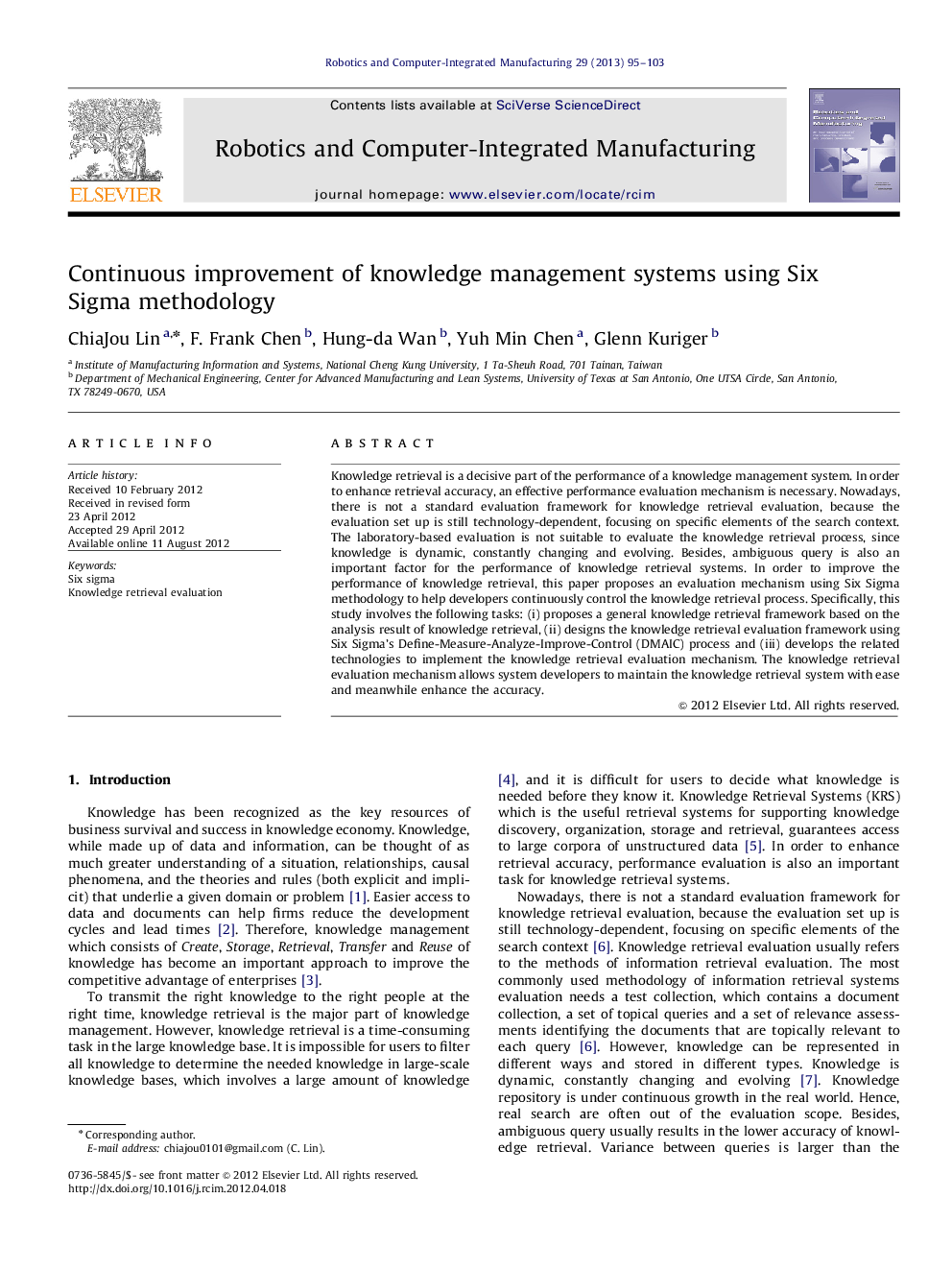| Article ID | Journal | Published Year | Pages | File Type |
|---|---|---|---|---|
| 414057 | Robotics and Computer-Integrated Manufacturing | 2013 | 9 Pages |
Knowledge retrieval is a decisive part of the performance of a knowledge management system. In order to enhance retrieval accuracy, an effective performance evaluation mechanism is necessary. Nowadays, there is not a standard evaluation framework for knowledge retrieval evaluation, because the evaluation set up is still technology-dependent, focusing on specific elements of the search context. The laboratory-based evaluation is not suitable to evaluate the knowledge retrieval process, since knowledge is dynamic, constantly changing and evolving. Besides, ambiguous query is also an important factor for the performance of knowledge retrieval systems. In order to improve the performance of knowledge retrieval, this paper proposes an evaluation mechanism using Six Sigma methodology to help developers continuously control the knowledge retrieval process. Specifically, this study involves the following tasks: (i) proposes a general knowledge retrieval framework based on the analysis result of knowledge retrieval, (ii) designs the knowledge retrieval evaluation framework using Six Sigma's Define-Measure-Analyze-Improve-Control (DMAIC) process and (iii) develops the related technologies to implement the knowledge retrieval evaluation mechanism. The knowledge retrieval evaluation mechanism allows system developers to maintain the knowledge retrieval system with ease and meanwhile enhance the accuracy.
► The knowledge retrieval evaluation mechanism is proposed using Six Sigma methodology. ► FAveP is proposed to estimate the performance of the knowledge retrieval system. ► A reasoning engine is proposed to analysis root cause. ► An adaptive p-chart is proposed to monitor the defect rate of the knowledge retrieval process. ► The objective of the mechanism is to continuously control the knowledge retrieval process.
